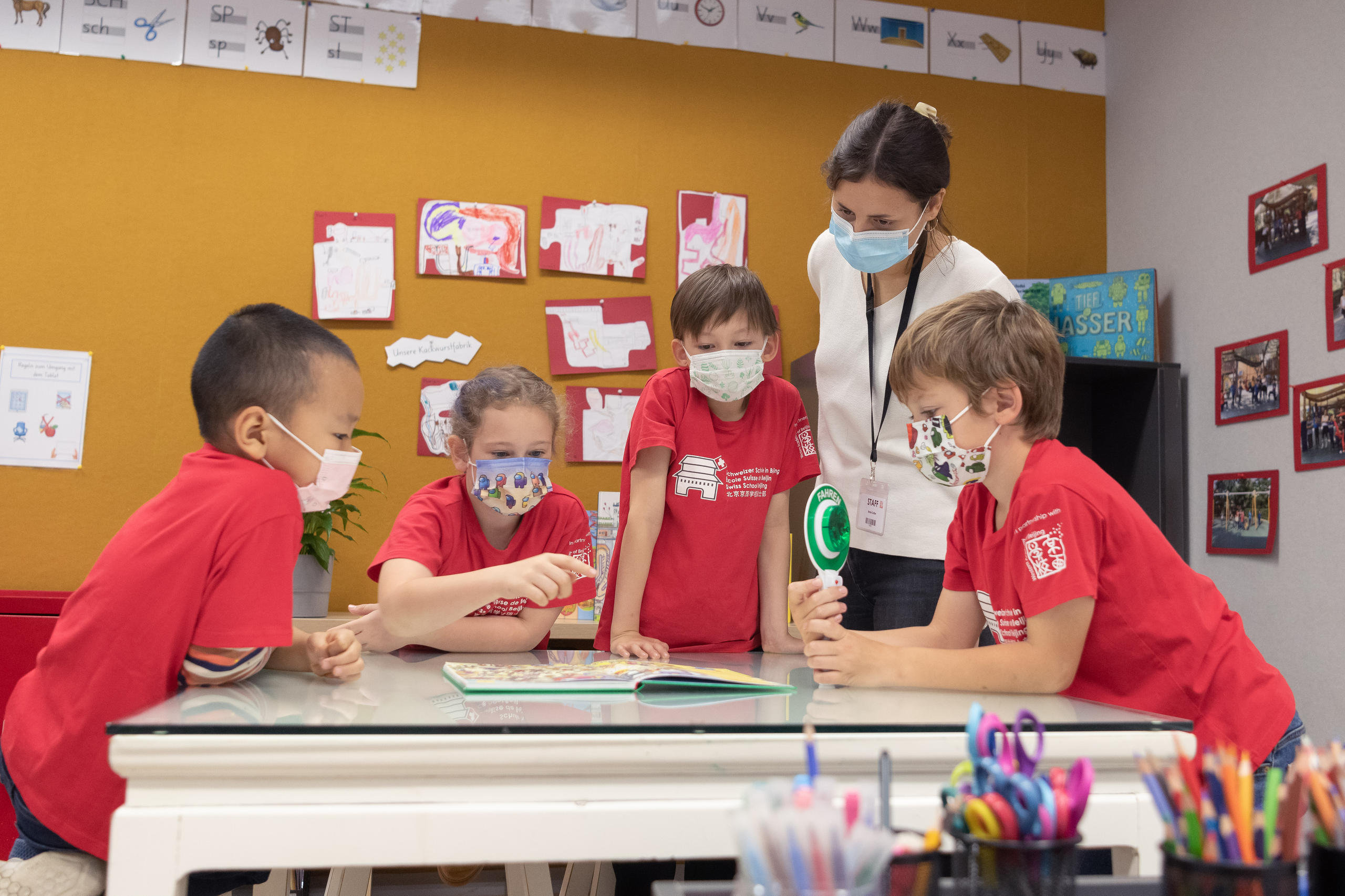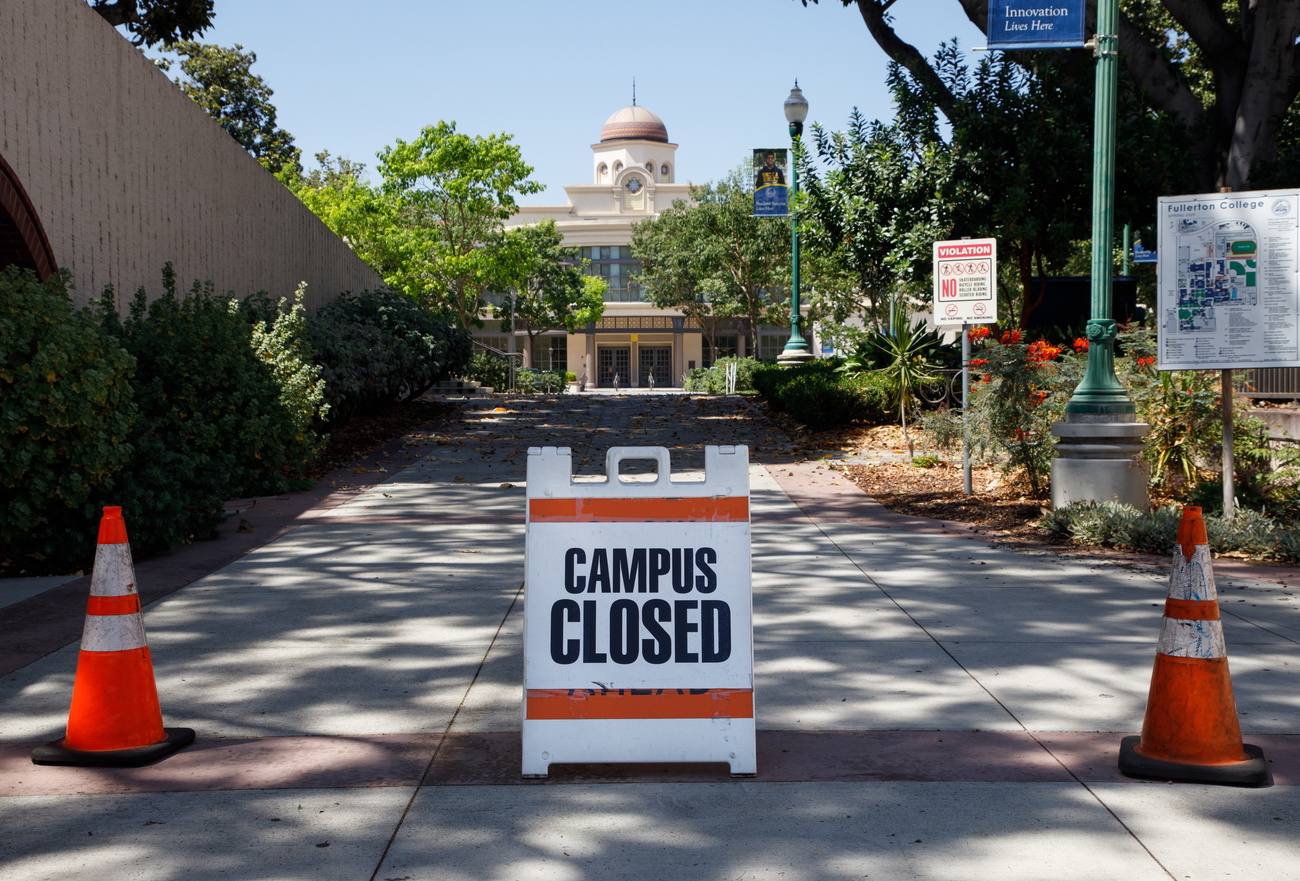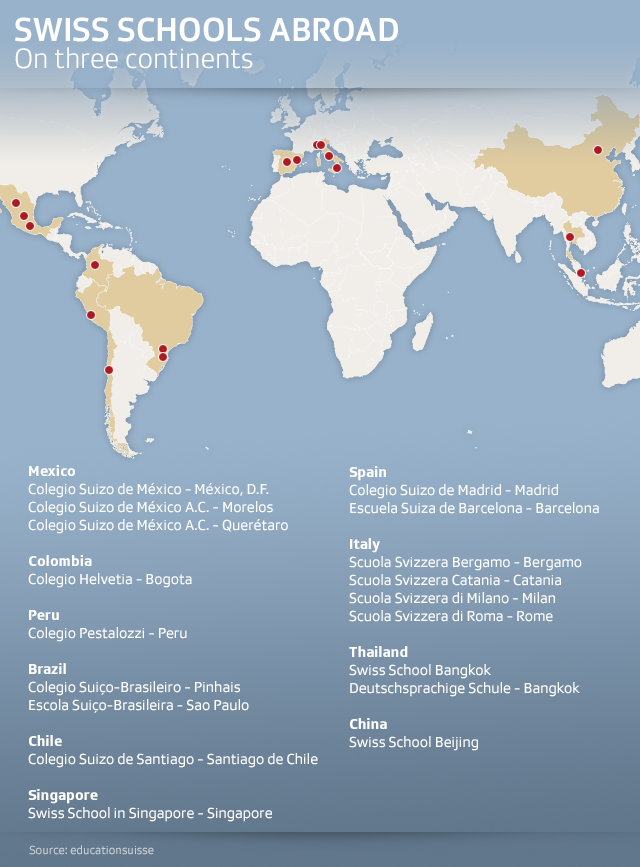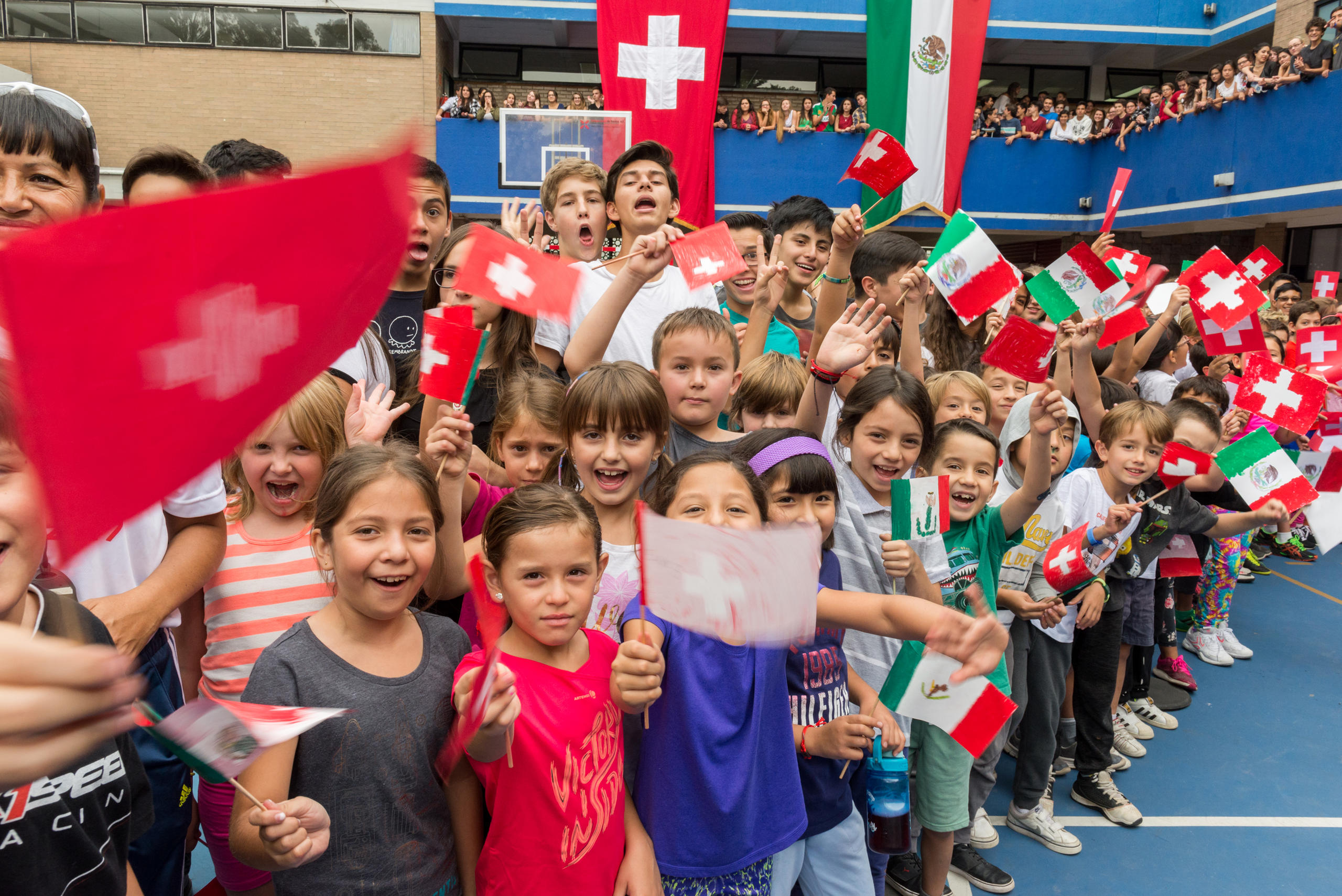Swiss schools abroad recover – slowly – from Covid

After the disruption to schooling wrought by the coronavirus pandemic, Switzerland’s official schools abroad are looking to the future. First up, defining what makes them ‘Swiss’.
Headteachers and officials from the 18 Swiss schools abroad are meeting in the canton of Thurgau from July 11-13 for their first full annual conferenceExternal link in Switzerland in three years.
More than 100 people will be there for the official day, which is open to guests, on July 13.
Thurgau is the patron canton of the Colegio Pestalozzi, the Swiss school in Lima, Peru, which has been among the worst affected schools of the network during the pandemic. It was on distance learning for over one yearExternal link.
Most of the other schools, which are spread among Latin America, Asia and parts of Europe, are “fairly back to normal”, says Barbara Sulzer Smith, the head of educationsuisseExternal link, the organisation which represents Swiss schools abroad.
Interior Minister Alain Berset was able to see the situation for himself when he visited the Swiss School in Rome in May this year. “After lockdown and distance learning – mastered with dedication by the Swiss school in Rome – it is all the nicer to celebrate its 75th anniversary here,” he tweeted afterwards.
Only the newest Swiss school abroad, in Beijing, had to once again go back to distance leanring this year, educationsuisse’s Sulzer Smith said. Schools in the Chinese capital were shut down in May amid a spike in locally transmitted Covid cases.
Challenges
“In some of the schools the challenge was to bring the kids back [after distance learning] and they had to get back into normal school life again,” Sulzer Smith told SWI swissinfo.ch.
Although some pupils’ German – this is the main Swiss language offered at Swiss schools abroad – slipped a bit due to lack of opportunities to practice, the overall level of schooling was well maintained, thanks to effective distance learning, she added.
However, pupil numbers in Swiss schools overseas are very slightly down. The latest figures for 2020 – 2021 will be released shortly – show 7,970 pupils for that year, compared with 8,000 in 2019.
“We had some Swiss expat families who went back to Switzerland [due to the pandemic] but some schools had new kids because local families realised that the Swiss schools offered good schooling also in crisis or pandemic times,” explained Sulzer Smith.

More
‘No point in staying here’: Swiss expats head home for schooling amid pandemic
Swiss schools abroad, although originally set up for expat families, now only have around 20% Swiss pupils. The rest of the school community is made up of locals and other expats. The schools are fee-paying, but are non-profit and are sponsored by a patron canton which gives pedagogical support (but no funding). Financial support comes from the government.
Swiss schools abroad also have to fulfil certain criteria as set out in Swiss law, such as the majority of teachers being Swiss, to obtain their official label.
Define ‘Swissness’
But in recent years, calls have been growing for the network to define their Swissness more precisely – especially against the backdrop of a highly competitive international schools’ market. In Singapore alone, the site of one of the Swiss schools, there are an estimated 60 plusExternal link international schools. China, too has a highly crowded market.External link

This has resulted in the drawing up of a new Swiss schools abroad charter, which will be presented to the public on July 13. This defines what the 18 Swiss schools abroad understand as Swissness in their values, but also in learning and teaching and school management. It also includes how Swiss schools act as cultural hubs and work as a network.
For example, it states that participation in school decisions by teachers, students and parents is very important. This mirrors the importance of direct democracy – where the people have a say – within Switzerland and is different to other school systems, where the school head is likely to have the ultimate say.
“A lot of these charter values are already being lived in Swiss schools abroad, but we want to make them more visible,” Sulzer Smith said.

In compliance with the JTI standards
More: SWI swissinfo.ch certified by the Journalism Trust Initiative













You can find an overview of ongoing debates with our journalists here . Please join us!
If you want to start a conversation about a topic raised in this article or want to report factual errors, email us at english@swissinfo.ch.